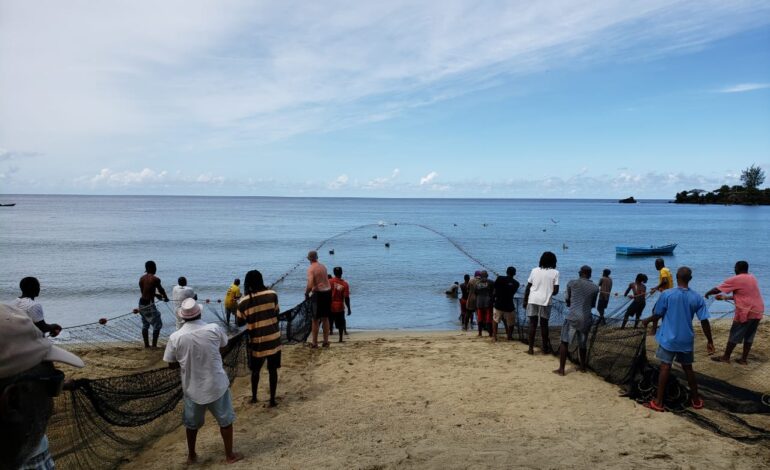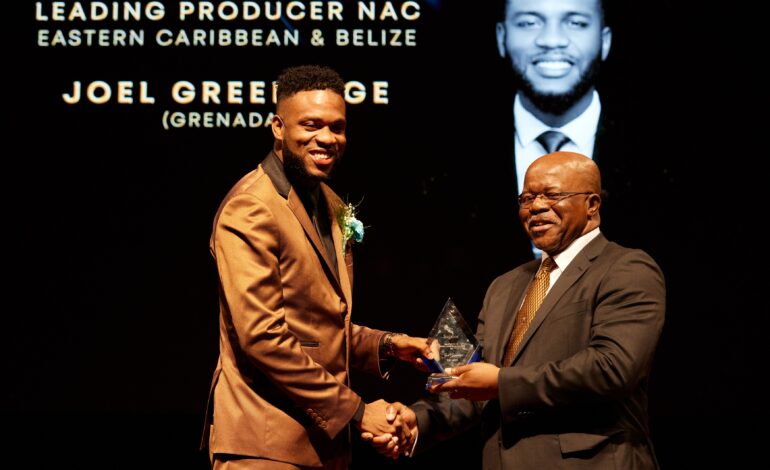
The “Strategies, Technologies, and Social Solutions to manage By-catch in Tropical Large Marine Ecosystem Fisheries Project”, which will be implemented by the Food and Agriculture Organization of the United Nations (FAO) in Barbados, Guyana, Suriname and Trinidad and Tobago will benefit fisher communities, especially those associated with Small Scale Fisheries, as well as help to reduce the loss of many threatened species important in the region, such as marine turtles and sharks . The Global Environment Facility (GEF) is providing grant funding of USD 5,329,452 for the implementation with an estimated USD 24,565,884 in co-financing in cash and in-kind co-financing coming from the fisheries related private sector and non-governmental organizations totaling USD 29,895,336. The project will commence in the first quarter of 2023 with a duration of 48 months.
In effort to prepare for the implementation of the project, a group of more than 80 persons representing fisher-folk, regional fisheries bodies, government, civil society organizations, private sector, and academia participated virtually in a regional workshop for the project preparation phase. The workshop, which was held on 28 April 2022, was organized by the FAO in collaboration with the fisheries agencies in the participating countries with four specific objectives: These included – presenting the GEF-accepted project concept, outlining the project preparation process, identifying key sources of information and stakeholders and partners to support the drafting of the project’s full proposal, and to present a work plan for the development of the project document and agree on roles and responsibilities. The discussions largely focused on the identification of government focal points, the selection of target fisheries, and the identification of key stakeholders associated with target fisheries for each project.
Jon Lansley, FAO Lead Technical Officer for the project, stated that the project aims to manage bycatch and reduce discards in the Caribbean and North Brazil Shelf Large Marine Ecosystems, thereby promoting sustainable and responsible fisheries that provide economic opportunities while ensuring the conservation of marine living resources. The project intends to improve marine habitats, contribute to more sustainable marine fisheries, and benefit males and females including fisherfolk, fishing communities, government agencies, relevant public and private sector, civil society, and academia.
Bycatch is the catch of fish and other marine animals that are not targeted. This includes organisms that are outside legal-size limits, over-quotas, threatened, endangered and protected species, and discarded for whatever other reason, as well as non-targeted organisms that are retained and then sold or consumed.
Denzil Roberts, Chief Fisheries Officer, Fisheries Department, Ministry of Agriculture in Guyana represented Guyana at the workshop and stated, “Guyana would like to thank the FAO and its partners for putting forward a project of managing bycatch and discards. We recognize that even though we are a nation surrounded by water and large coastlines we still have a long way to go in managing our fisheries, so this is indeed very timely.”
The project components also support the country’s implementation of the Caribbean and North Brazil Large Marine Ecosystem Strategic Action Programme priorities. These components include improving fishing practices to manage bycatch and reduce the negative impacts of fishing gears in the Caribbean Large Marine Ecosystem (CLME) fisheries and strengthening governance and management frameworks and enforcement measures to better manage bycatch and reduce discard in CLME+ fisheries. Other key areas to be targeted include encouraging behavioural change for the adoption of effective bycatch mitigation and discard reduction measures in target CLME+ fisheries and supporting knowledge management, lesson learning, and project coordination






